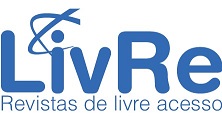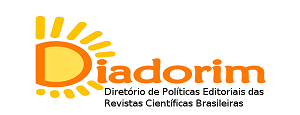OUTRAS ECONOMIAS NO ESPAÇO UNIVERSITÁRIO
a experiência da feira de economia popular e solidária da FACE/UFMG
DOI:
https://doi.org/10.70860/rtg.v13i30.19240Palavras-chave:
Economia popular e solidária, outras economias, extensão universitária, feira, comercializaçãoResumo
Há 10 anos, a Feira de Economia Popular e Solidária da Faculdade de Ciências Econômicas da Universidade Federal de Minas Gerais constitui um espaço de trocas, conhecimento e diálogo sobre as outras economias no espaço universitário. Este artigo discute a experiência da Feira como projeto extensionista, abordando sua metodologia, o perfil dos participantes e os resultados alcançados. São utilizados dados de questionários aplicados junto aos feirantes e relatos obtidos em rodas de conversa realizadas em 2023. Destaca-se a multiplicidade de perfis dos participantes, embora a maior parte seja de mulheres autodeclaradas negras. São diversas também as motivações para a participação, o que permite que se entenda a Feira como um espaço de convergência de experiências e vivências diversas. Ressalta-se, ainda, a relevância da Feira como processo pedagógico contínuo através da criação de conexões, colaborações e afetos. Como aspecto fundamental desse movimento, encontra-se a apropriação do espaço da universidade – e de sua dinâmica cotidiana – pelas práticas econômicas populares.
Referências
CATTANI, A. D.; LAVILLE, J. L.; GAIGER, L. I.; HESPANHA, P. Dicionário Internacional da Outra Economia. São Paulo: Almedina Brasil, 2009.
CONSELHO NACIONAL DE ECONOMIA SOLIDÁRIA (Conaes). 1º Plano Nacional de Economia Solidária (2015- 2019). Brasília: Ministério do Trabalho e do Emprego, 2015.
CORAGGIO, J. L. Da Economia dos Setores Populares à Economia do Trabalho. In: KRAYCHETE, G. et al. (Orgs.). Economia dos setores populares: entre a realidade e a utopia, Petrópolis: Vozes, 2000. p. 91-133.
CORAGGIO, J. L. La sostenibilidad de los emprendimientos de la economía social y solidaria. Otra Economía, v.2, n.3, p.41-57, jul./dez. 2008.
DINIZ, S. C. Possibilidades da economia popular e solidária no Brasil contemporâneo: apontamentos. Nova Economia (UFMG), v. 29, p. 963-985, 2019. DOI: https://doi.org/10.1590/0103-6351/4685
DINIZ, S. C.; TONUCCI FILHO, J. B. M. A economia popular no Brasil contemporâneo: Uma análise a partir dos Censos Demográficos 2000 e 2010. In: GAGO, V.; CIELO, C.; TASSI, N. (Orgs.). Economías populares. Una cartografía crítica latinoamericana. Buenos Aires: CLACSO, 2023, p. 123-160.
FERNANDES, B. S.; DINIZ, S. C.. Para uma multiplicação dos imaginários e das formas de fazer economia: a experiência do Colmeia - Grupo de Estudos, Pesquisa e Extensão em Economia Popular e Solidária da FACE/UFMG. ORG & DEMO, v. 23, n. 1, p. 117-136, 2022. DOI: https://doi.org/10.36311/1519-0110.2022.v23n1.p117-136
FORPROEX - Fórum dos Pró-reitores de Extensão das Universidades Públicas Brasileiras. Política Nacional de Extensão Universitária. Manaus: FORPROEX, 2012.
FÓRUM MINEIRO DE ECONOMIA POPULAR SOLIDÁRIA (FMEPS). Plano Estadual para o Desenvolvimento da Economia Popular Solidária. Belo Horizonte, 2015.
GAGO, Verónica. Neoliberalism from below: Popular Pragmatics & Baroque Economies. London: Duke University Press, 2017. DOI: https://doi.org/10.2307/j.ctv1134frn
GAGO, Verónica. What are popular economies? Some reflections from Argentina. Radical Philosophy, 2018.
GAIGER, L. I. G. A economia solidária no Brasil: refletindo sobre os dados do primeiro mapeamento nacional. In: Seminário Nacional Movimentos Sociais, Participação e Democracia, 2, 2007, Florianópolis. Anais eletrônicos: Florianópolis, 2007.
GIBSON-GRAHAM, J. K. A diverse economy: rethinking economy and economic representation. In: http://avery.wellesley.edu/Economics/jmatthaei/transformationcentral/solidarity/solidaritydocuments/diverseeconomies.pdf. Acesso em: 10/10/2022. 2019a.
GIBSON-GRAHAM, J. K. Economic imaginaries. In: http://www.communityeconomies.org/sites/default/files/paper_attachment/Venice- gibson-graham.pdf. Acesso em: 14/03/2022. 2019b.
LEFEBVRE, H.. Theoretical problems of autogestion. In: LEFEBVRE, H. State, space, world: selected essays. Minneapolis: University of Minnesota Press, 2009, p. 138–152.
POLANYI, K. A grande transformação: as origens da nossa época. 2. ed. Rio de Janeiro: Elsevier, 2011.
RAZETO, L. De la Economía Popular a la Economía de Solidaridad en un Proyecto de Desarrollo Alternativo. Ciudad de México: Instituto Mexicano de Doctrina Social Cristiana, 1993.
RAZETO, L. et al. Las Organizaciones Económicas Populares. Santiago: Ediciones PET, 1983.
SINGER, P. I. Economia solidária: geração de renda e alternativa ao liberalismo. Proposta, ano 26, n.72, p. 6-13, mar./mai. 1997.
SINGER, P. I. Introdução à Economia Solidária. São Paulo: Editora Fundação Perseu Abramo, 2002.
Downloads
Publicado
Como Citar
Edição
Seção
Licença
Copyright (c) 2024 Revista Tocantinense de Geografia

Este trabalho está licenciado sob uma licença Creative Commons Attribution-NonCommercial-NoDerivatives 4.0 International License.
A Revista Tocantinense de Geografia não remunera nenhum autor pela publicação de seus textos. Os conteúdos dos textos publicados neste periódico são de responsabilidade de seus autores.








.png)












